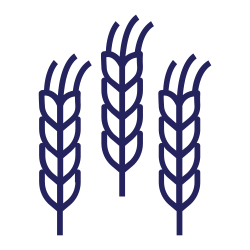Section Title
Dry Soils Impacting Winter Wheat Emergence?
Crop Types
- Winter Wheat
The relatively dry fall weather experienced by much of the province has raised some concerns about the winter wheat crop.
It’s important to remember that seeds planted about a half inch into dry soils do not need much rain to get started. Ken Gross, Agrologist with Ducks Unlimited Canada, reports that much of the winter wheat crop in the south west looks good, as most of the area has received some heat and moisture. However, Gross does prefer to see more significant crown growth going into the winter, as it contains more energy to get though winter stresses.


Crown growth in two winter wheat fields in MB, bigger crown growth pictured in the lower photo.
Manitoba farmers are also seeding newer varieties (AAC Wildfire, AAC Elevate, AAC Goldrush) that are more winter hardy than older varieties (CDC Falcon, AAC Gateway, Emerson), which should help those farmers who saw limited growth of their winter wheat this fall. Gross also notes that even in situations where no emergence was observed in the fall (dry conditions), or where fields were dormant seeded, that the crop vernalized (produced seed heads) and the resulting yield was intermediate between spring wheat and winter wheat.
Most winter kill in Manitoba occurs in years where unseasonably warm temperatures allow snow melt in February. The water runs to the low areas of the field where it re-freezes and causes ice encasement, killing the winter wheat areas. Some producers are surprised when the low areas are experiencing winter kill, as it’s usually expected that the hill tops will die from wind blowing snow off those areas.
If your winter wheat looks a little thin or is going into winter with just one or two leaves, it’s recommended that you apply N early next spring, if you haven’t already. Early is as soon as you can get on the field or when the crop is just greening up. Good fertility is crucial to ensure your crop will grow and tiller vigorously.
Ken Gross- Agrologist with Ducks Unlimited Canada
Mallorie Lewarne- Agronomy Extension Specialist with Manitoba Crop Alliance












